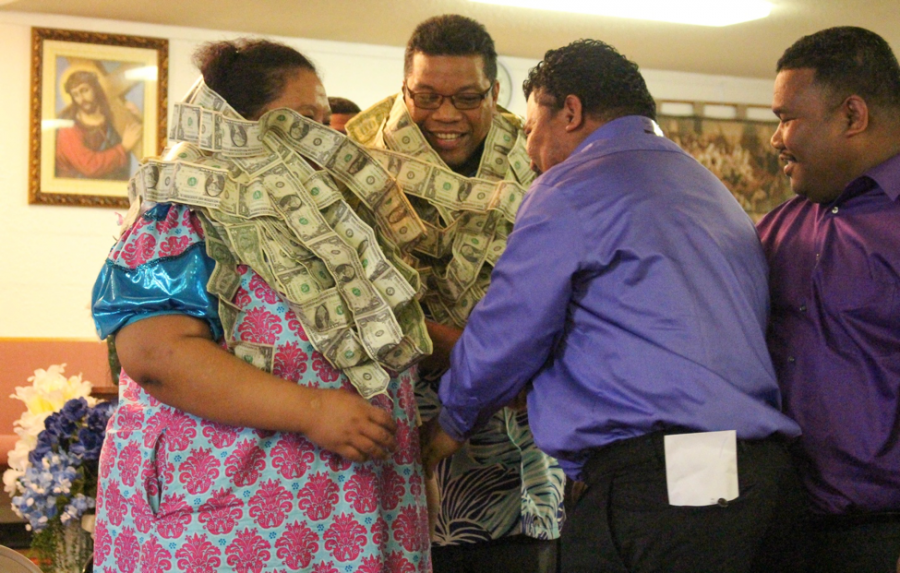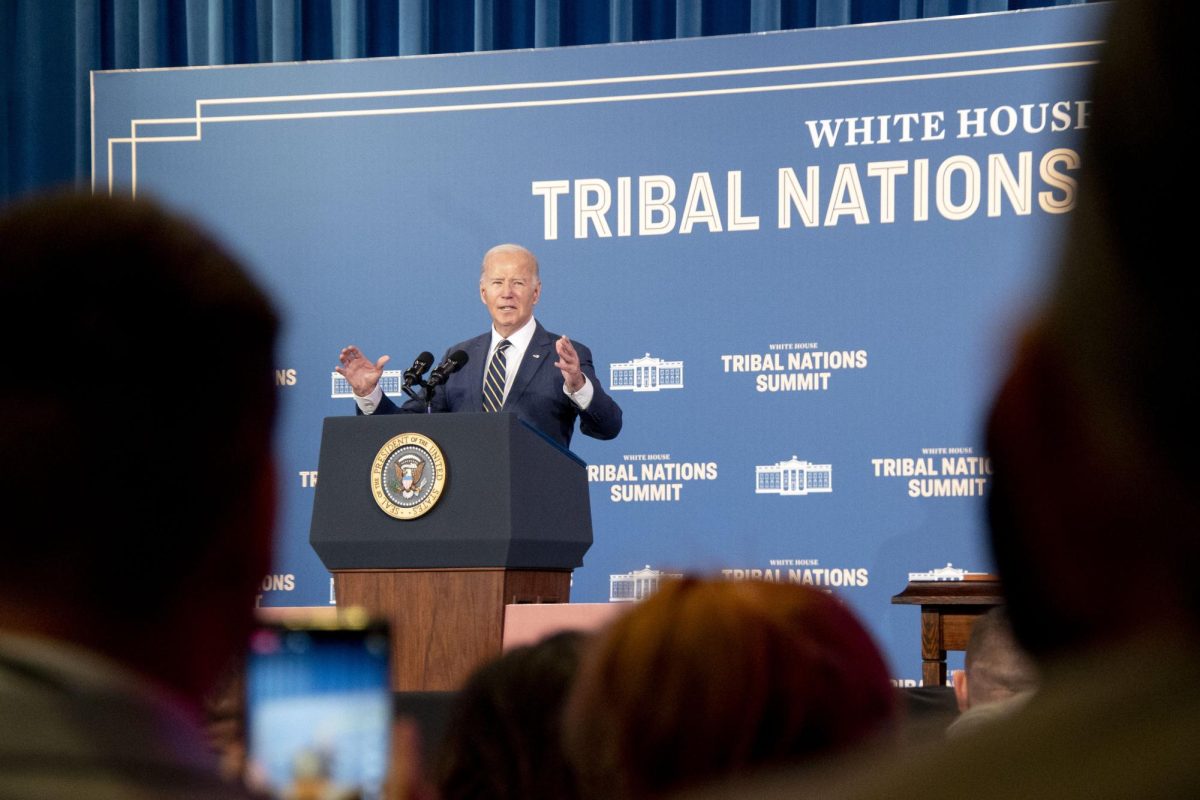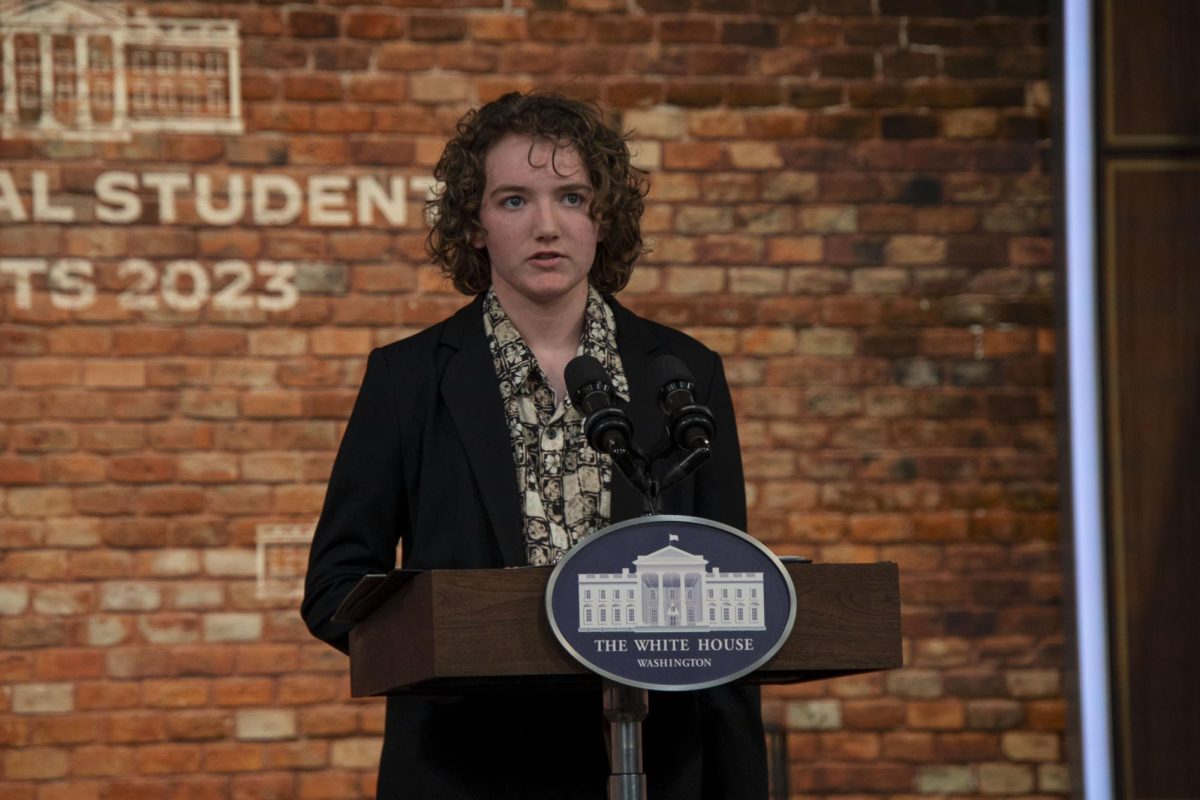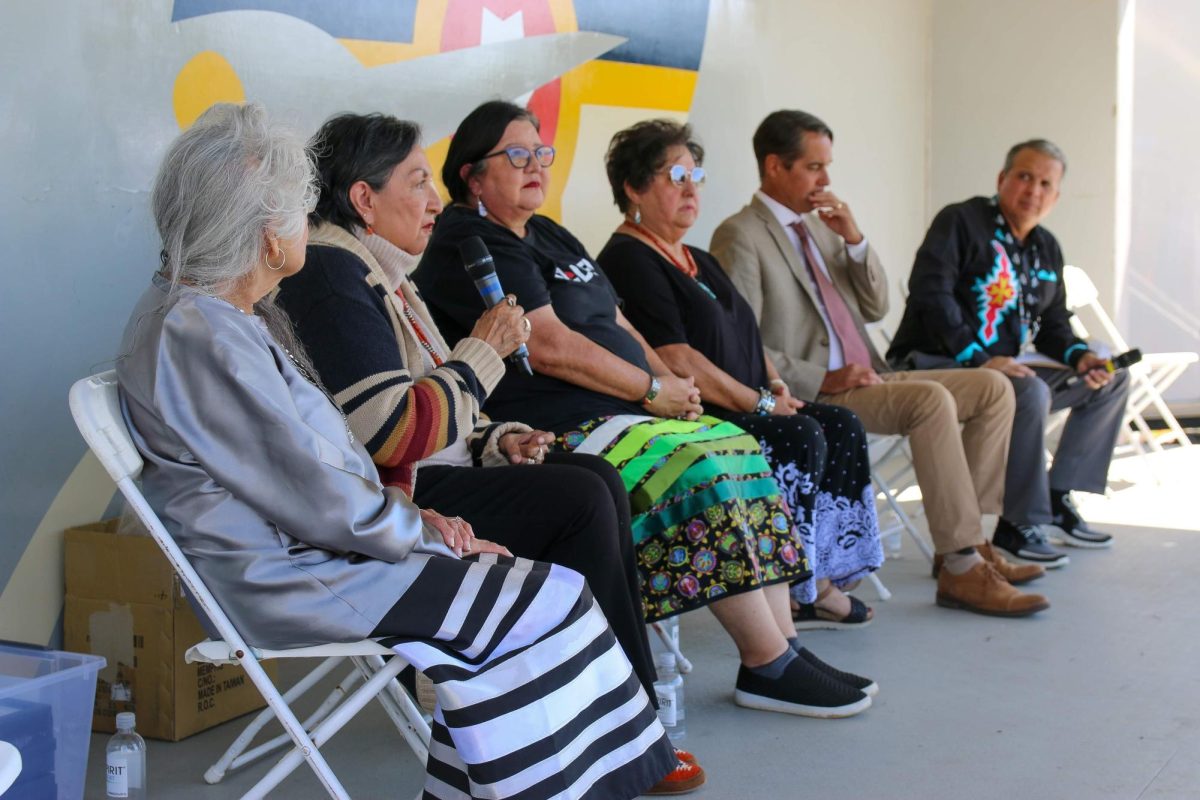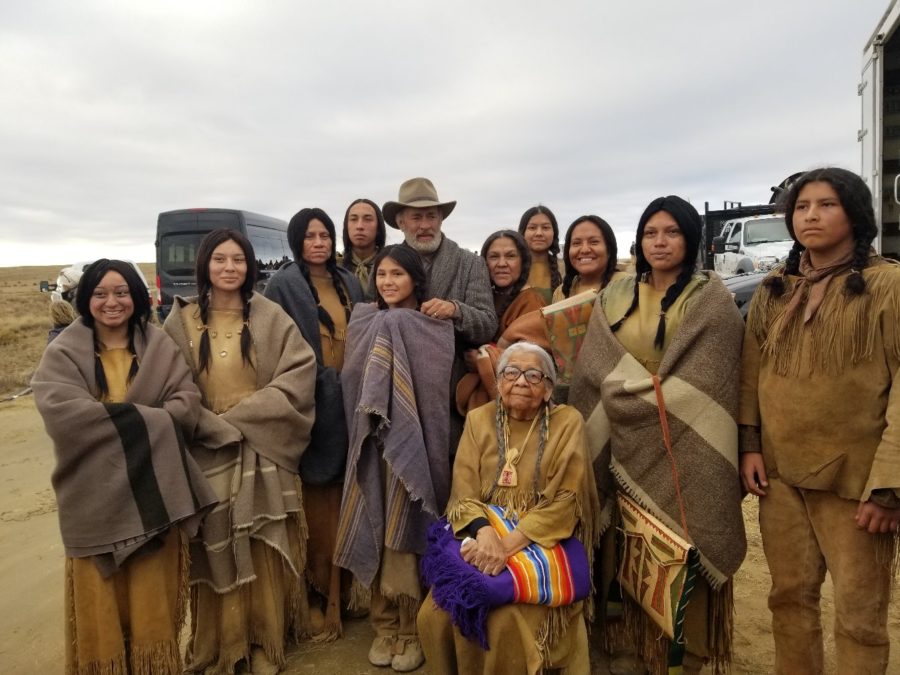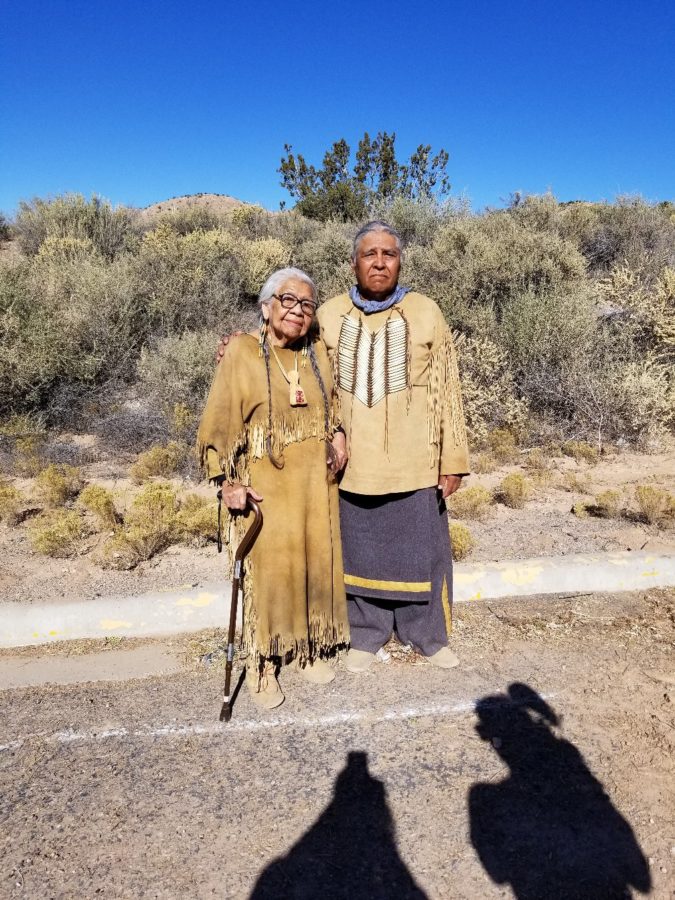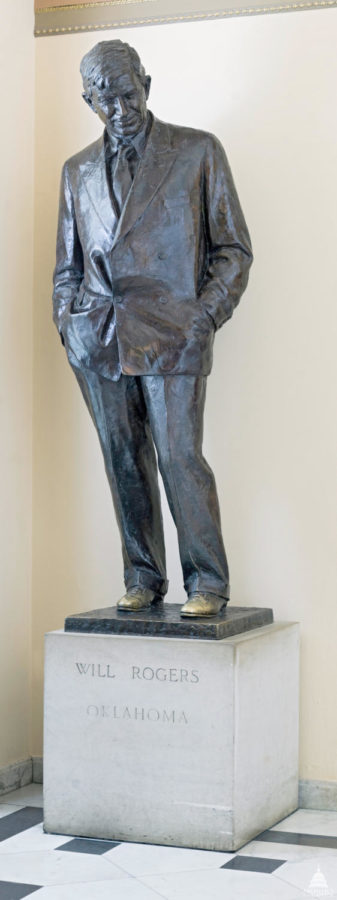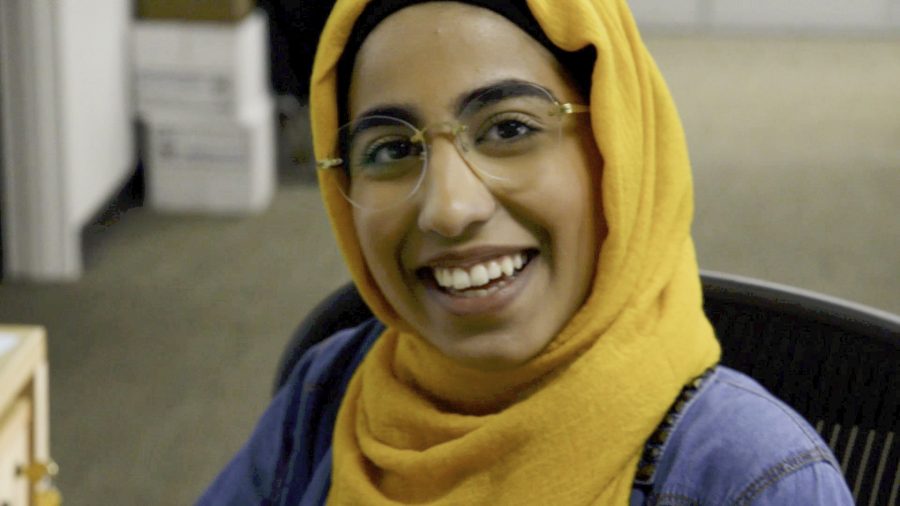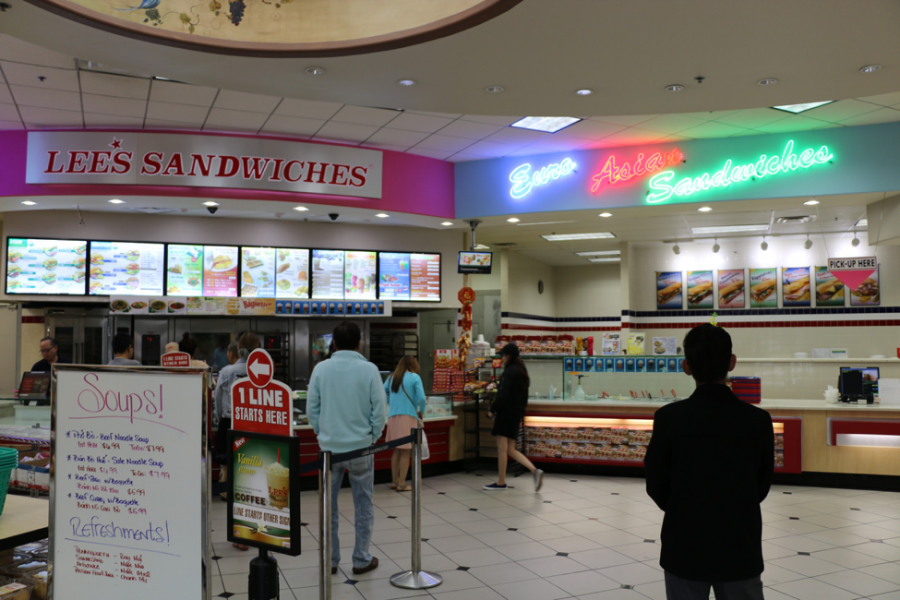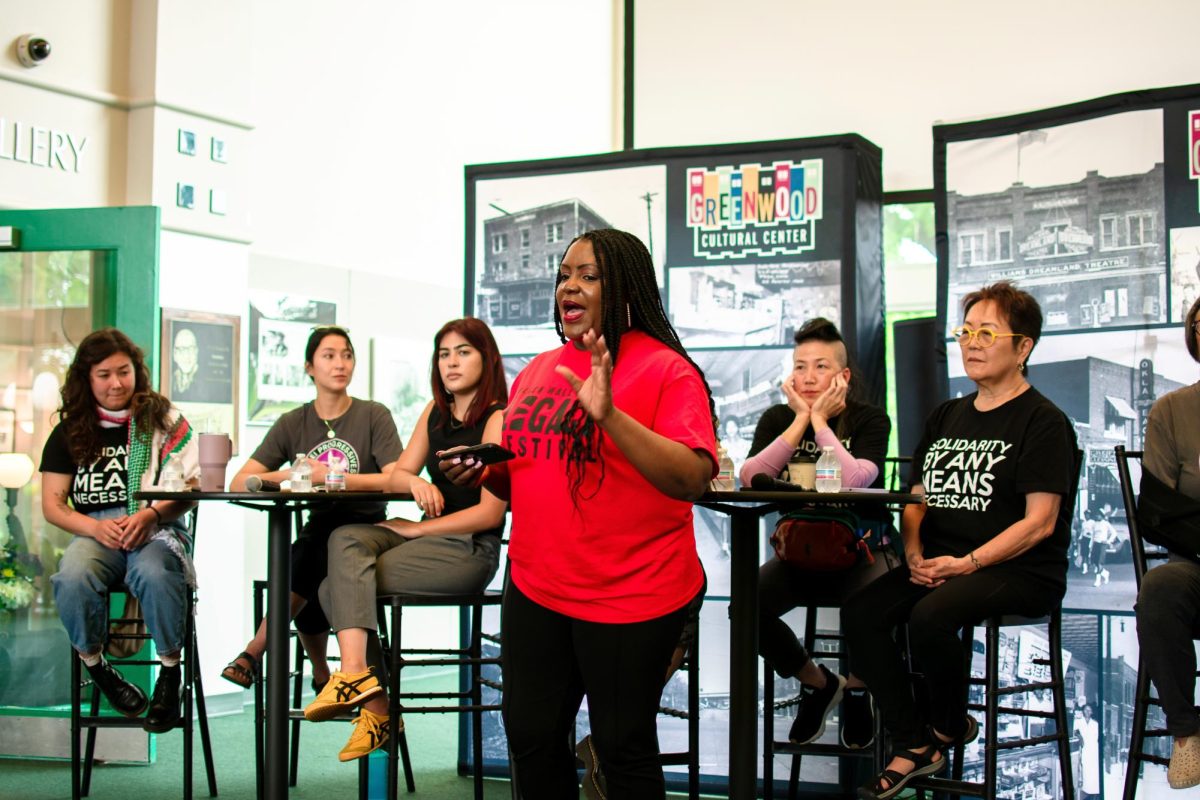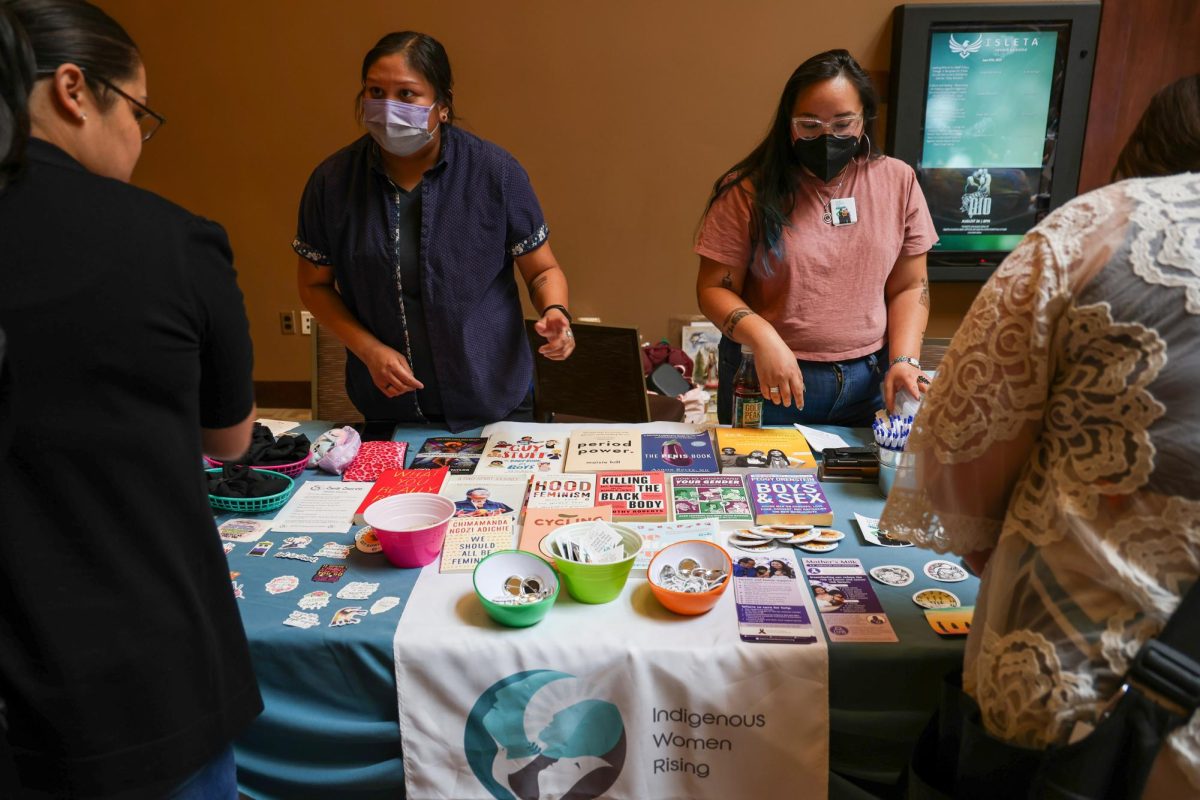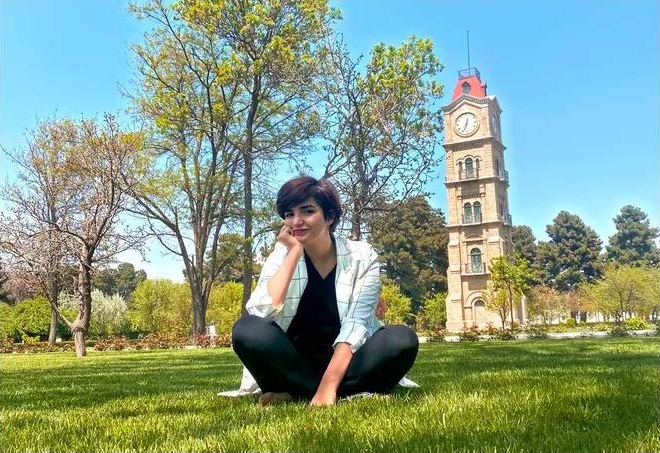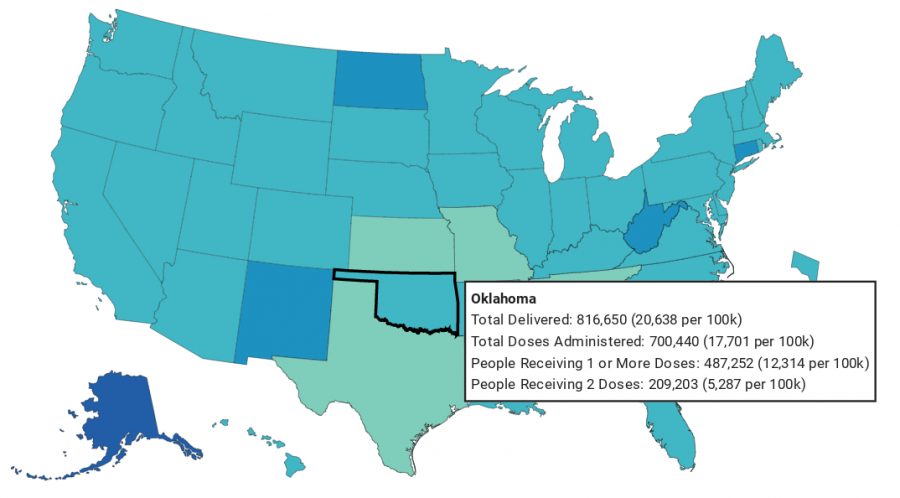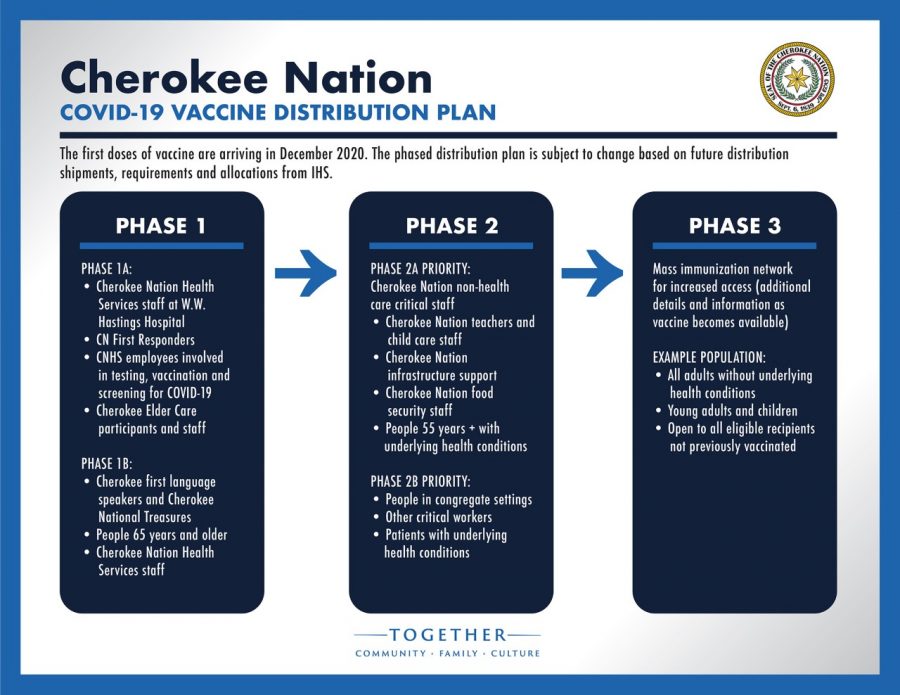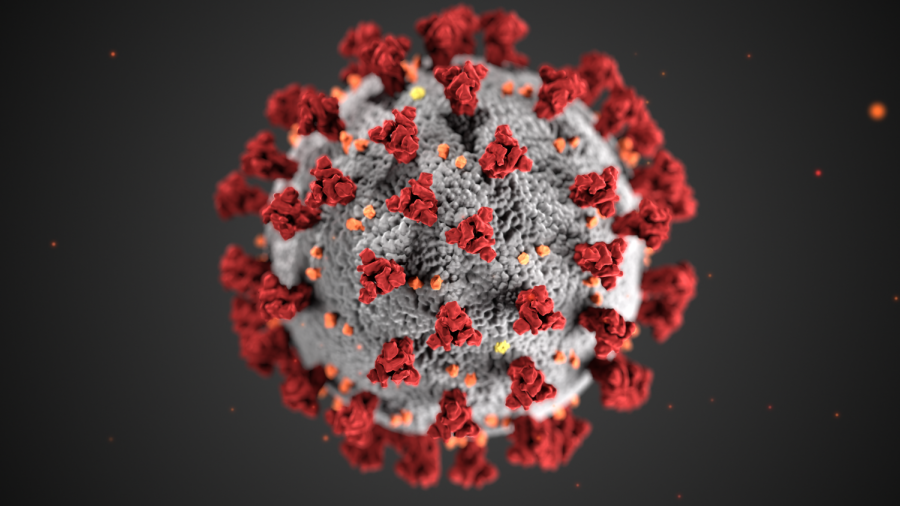Cars park along E Cherokee St. outside the Marshallese United Church of Christ in Enid before the 10:30 a.m. Sunday service. Children are playing in front of the white building as three bells ring to signify the service has begun. Inside, dozens of metal folding chairs are lined up behind pews, which all sit facing pastor Alfred Alfred. He stands at the podium with five-dollar-bills taped across his neck like a sash — a tradition symbolizing his status within the community.
Alfred speaks in his native tongue while preaching and leads the choir with Marshallese-translated hymns. All seats are taken but some stand in the back corners of the room singing along. The church is one of many in Enid, and serves as a commonplace for tradition, culture and gospel.
The Marshallese community is largely unknown to Oklahoma, but is a familiar face to Enid, with more than 5 percent, or about 2,800, of Enid’s approximately population of 50,000.
The United States and the Marshall Islands share a unique relationship through the Compact of Free Association (COFA), which was established in 1983 as a compensation for the nuclear testing program on the northern Marshall Islands from 1946 to 1958.
By 1986, the Marshall Islands achieved independence as the Republic of the Marshall Islands. The Marshallese began moving to Enid around the same time, Enid’s Community Clinic executive director Janet Cordell said
“The Marshallese came here 35 years ago, probably,” she said.
“I know why they came in the first place, and it’s because a couple of them were students,” Cordell said.
The students attended Phillips University in Enid, and were led there by a Christian church, the Disciples of Christ, which had a missionary presence on the islands after World War II, she said.
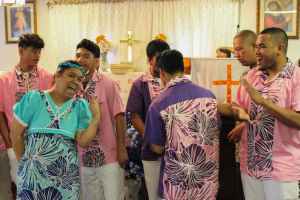
“Right about the time when they were doing all the nuking,” Cordell said.
“I know why they’re here now and it’s because of the shift-work,” she said.
Marshallese find most employment opportunities at Advance Foods and Walmart, Cordell said.
“I don’t really know why they stayed in the early days, but there was a very small presence,” she said.
As the population grew, the churches emerged, Cordell said.
“At some point in time … It has to be close to 30 years ago, they started a Marshallese Assembly of God. That was the first Marshallese church here,” she said.
Ramson Malolo, 32, sits in the Marshallese United Church of Christ’s office, as music and singing from a traditional Biit dance can be heard through the walls.
Malolo, who grew up in the Marshall Islands and came to the U.S. in the early 2000s, said the Marshallese who move to the U.S. come for education and a better economy, but the church is what keeps the community together.
He said it’s a place where culture survives as younger generations become more Americanized.
“The one thing we love to keep in our life is our culture, because it’s rare from any other,” Malolo said.
“You take Guam and you take the Marshall Islands; with Guam, they don’t have their culture, they’re losing their language,” he said.
“We’re still speaking our language, we’re still eating our traditional food and I think most of the people who come from the Marshall Islands that have never been to the (U.S.), they don’t know how to maneuver or live here. They’re still adapting to that,” Malolo said.
Josana Samuel, 51, said it can take time for Marshallese to adapt to the American lifestyle.
“The only thing different about adapting to American culture, to me, is the money — financially. Back home, we live with a laidback lifestyle. When we’re here, it’s the struggle: traffic, work, bills, everything,” he said.
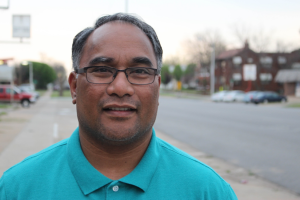
“You work by the hour over here — back home it’s just sit back and relax all day long. There’s no planning, but it’s a small island. It’s island lifestyle. That’s also the Marshallese way,” Samuel said.
Geobi Batoong, 40, said one cultural difference is time.
“We’re always late because we go by Marshallese-time,” he said. “We’re good (at) working, only one problem: we call in too much,” Batoong said.
When asked what Marshallese-time meant, Batoong said while laughing, it means to “kick back and relax.”
Malolo, Samuel and Batoong said they each enjoy their lives in Enid.
“We don’t say United States — we say ‘Mainland’ because the United States has become our home away from home,” Malolo said.

